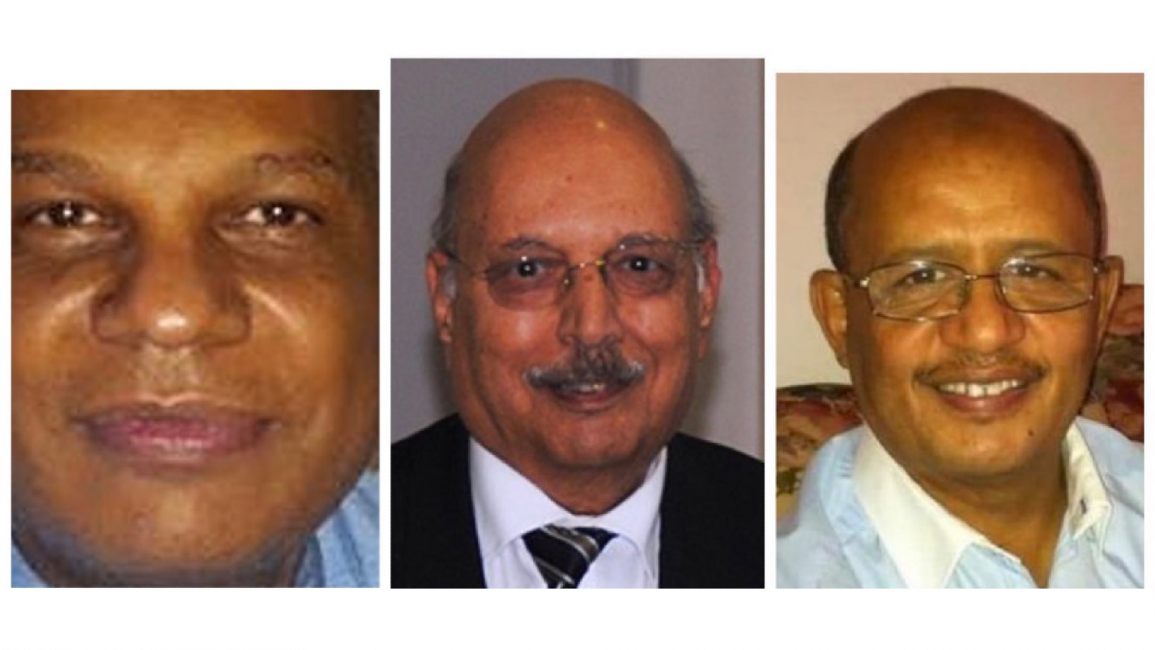Three Muslim doctors become first physicians in UK to die of coronavirus
Three Muslim doctors in the UK have died of the novel coronavirus in the space of a week, amid reports that National Health Service staff are being denied basic protective equipment to carry out their duties.
The medical practitioners were immigrants of Muslim backgrounds, according to media reports.
Sudanese-born ear, nose and throat specialist Dr Amged El Hawrani died in Leicester in central England, after he had tested positive for the Covid-19 illness.
The 55-year-old had been on life support for nearly two weeks.
Hawrani's passing followed that of Sudanese surgeon Adil El Tayar and Habib Zaidi, a GP of Pakistani origin.
Dr El Tayar, 63, previously worked in Sudan and Saudi Arabia, before returning to help the NHS cope with the coronavirus pandemic.
"He wanted to be sent where he would be most useful in the crisis," Zeinab Badawi, a cousin of Dr El Tayar, told the BBC.
"That was typical of my cousin Adil, always willing to help, always with a willing smile. It had taken just 12 days for Adil to go from a seemingly fit and capable doctor working in a busy hospital to lying in a hospital morgue."
Tributes were paid for the three doctors, with many pointing out that their efforts run contrary to the often negative portrayals of Muslims and immigrants in the British media.
Read also: The Middle East at war with coronavirus: Top stories from 29 March
"The next time any of you think about or say 'bloody foreigners' or 'bloody Muslims' remember this. RIP. The names of the first three Doctors who died protecting British people from the Covid-19 Amged el-Hawrani Adel el-Tayar Habib Zaidi," wrote one Twitter user.
"Three NHS doctors have passed away due to Covid: Adil El-Tayar, Amged El-Hawrani and Habib Zaidi. Don't want to hear Muslims being lectured on 'British values' again," wrote another.
'Ill equipped'
Hospital bosses and doctors on Thursday warned of being swamped by a "tsunami" of Covid-19 patients in London, as the UK braces for a peak in cases and the government faced calls to urgently provide specialist kit and tests for frontline health workers.
Scientists, though, have warned that thousands of new ventilators may arrive in the UK too late, while the government said it failed to join a European scheme to boost capacity due to a communications "mix up".
|
||
The UK initially adopted a light-touch approach to the outbreak, but has since imposed tougher measures, including a three-week lockdown, as confirmed cases and deaths climbed.
The chief executive of NHS Providers, which represents the heads of hospital trusts in the state-run healthcare providers, said there had been an "explosion of demand" in the capital.
Chris Hopson told BBC radio that hospital bosses said there had been "wave after wave after wave" of admissions of seriously ill patients, with a surge in numbers predicted in the coming weeks.
"The word that's often used to me is a sort of continuous tsunami," he added.
Official statistics are thought to represent just a fraction of the real number of infections across the UK, as only those taken to hospital with severe symptoms of Covid-19 are tested.
In a show of appreciation for health staff, the country took part in a collective round of applause at 8pm, with social media videos capturing cheers echoing across the nation's cities, towns and villages.
'Lambs to the slaughter'
Frontline healthcare workers say a lack of personal protective equipment (PPE) as well as insufficient testing of staff for Covid-19 is putting them and patients at risk.
"If hospitals are to survive this, we urgently need adequate protective clothing. Otherwise we are lambs to the slaughter," one doctor wrote in The Daily Mail newspaper.
The government says it has shipped 7.5 million pieces of PPE in the last 24 hours but Hopson said "unprecedented" staff absences of up to 50 percent were exacerbating the crisis in London.
The NHS has access to some 8,000 ventilators and the government has ordered 8,000 more. Prime Minister Boris Johnson's spokesman said they were expected to arrive in the coming weeks and months.
But Imperial College epidemiology Professor Neil Ferguson, a government scientific advisor, has said most would be needed "in approximately two to three weeks" time as demand peaked.
 |
| [Click to enlarge] |
Follow us on Facebook, Twitter and Instagram to stay connected


![President Pezeshkian has denounced Israel's attacks on Lebanon [Getty]](/sites/default/files/styles/image_684x385/public/2173482924.jpeg?h=a5f2f23a&itok=q3evVtko)



 Follow the Middle East's top stories in English at The New Arab on Google News
Follow the Middle East's top stories in English at The New Arab on Google News


